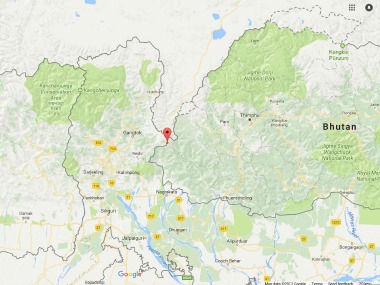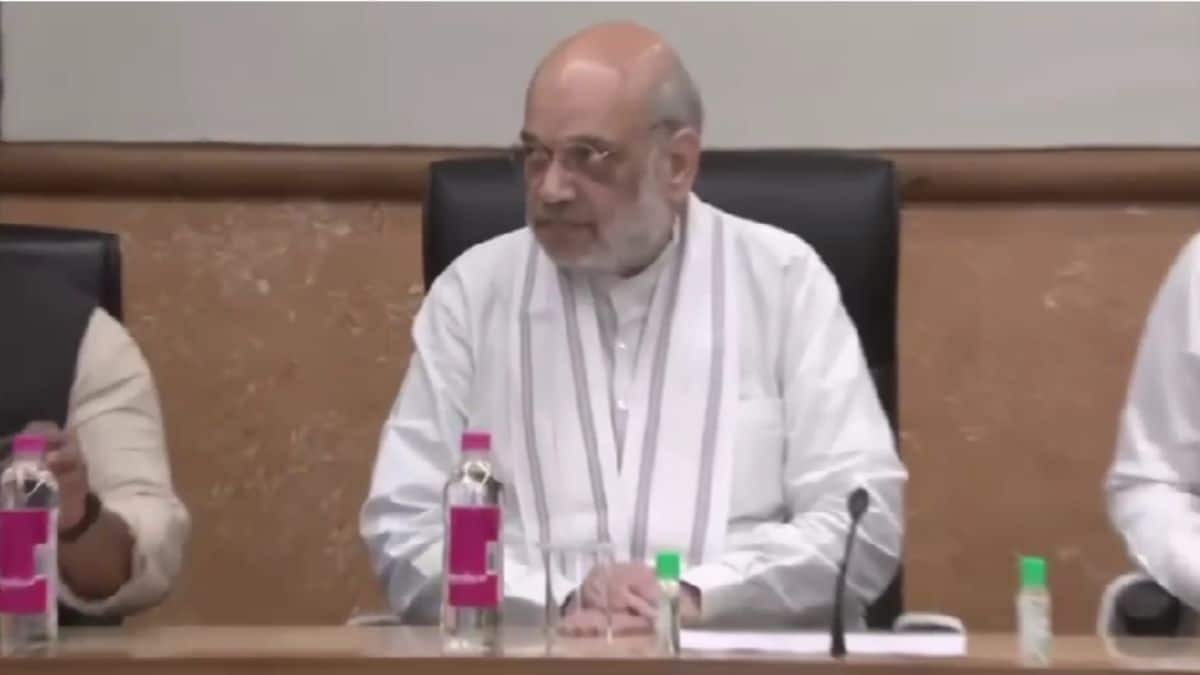As a country, India is shaped rather oddly. It has a giant peninsula to the south, has a dog-head shaped state to the west and large, disputed borders in the north. And then there is the east. Or more particularly, the North East. While the rest of India can be seen as one big landmass, the North East is trickier. The presence of Bangladesh means that the North East is connected with the mainland by a particularly thin piece of land called the Siliguri corridor. This narrow strip — which
slims down to 17 kilometres at its narrowest — is also known by a more appropriate name: Chicken’s Neck. The corridor is extremely important for India because it
runs its rail and road networks towards the North East through it. This allows it to sustain the armed forces posted in the North East which will form an important piece of the puzzle should a conflict arise between India and China in the region. If, however, China is able to block off the corridor (and break the Chicken’s Neck, so to speak), this will isolate the North East and will cut off the supplies and reinforcements reaching that area. There is no sea route as the North East is completely land-locked. Limited provisions can reach the region if India uses only aeroplanes. It is in this context that the stand-off at Doka La becomes important. Doka La is a pass in the middle of the Doklam plateau, which is
very close to the tri-junction border of India, Bhutan and China. In June 2017, India accused China of constructing a road in the disputed territory on the Doklam plateau. This road would link the Chinese territory of Yadong to Doklam and would allow China to transport troops and munitions practically at India’s doorstep with great ease. [caption id=“attachment_3754521” align=“alignleft” width=“380”] A map of the Doka La area. Google Maps[/caption] To be clear, the dispute on the territory is not between India and China but between Bhutan and China as it falls within Bhutan’s borders. Indeed, China has
already brushed aside the Royal Bhutan Army which had sought to prevent the construction. However, because of the disputed territory’s proximity to the Siliguri corridor, India has become involved in the dispute. Post India’s opposition, China asked India to remove two bunkers which were set up at Lalten in the plateau. These bunkers were later destroyed by China on 6 June after which China claimed ownership over the region. The geo-political importance of China’s presence in the disputed territory China wants to get as close to the Siliguri corridor as it can because then it gets the option of cutting off the North East from the rest of India. This means the armed forces stationed in the North East will stop getting provisions and reinforcements requiring a complete rethink of India’s military strategy. It also allows for
conflict to rise in the North East as it gets away from India’s direct administration. This gives China two-fold benefit as India’s north-eastern troops fall in disarray and India’s gets another headache of maintaining order in the North East. China’s presence in the area also gives it possible access to important Indian infrastructure. A
hydro-electric project is located at Jaldhaka river at Jhalong, close to the border. The project is also a bridge for crossing over to Bhutan. China’s water power China itself has been busy building infrastructure close to the border including dams which establish its rights over the waters of the biggest river in the region, the Brahmaputra. In 2015, it
started a large hydropower project in the form of the Zangmu dam on the river. China’s damming of the river can turn water into a weapon should conflict arise as it can either turn off the water supply or flood the lower riparian States, the first one of which is India. Further, Chinese actions affect not only India but also Bangladesh which is the lower riparian State in the picture. Any arrangement with regards the Brahmputra must then be a trans-national one, a fact which India can use to its advantage if it can get Bangladesh in its corner. China’s dams will also
adversely affect the livelihoods of people who are depending on the Brahmputra for small-scale fishing and subsistence agriculture. There is also the problem of the ecosystem being affected which will have an impact on fishing in the entire South East Asia where fish is a major source of food. The need to protect Bhutan Even apart from the strategic importance, Bhutan is one of India’s closest allies and India
virtually serves as a security guarantor to the hill kingdom through the 2007 Friendship Treaty. So when China infringes on Bhutanese territory like it did in the present case, it also tests India’s resolve to stand by its ally. If India does not step in, it shows Bhutan that it cannot rely on it’s long-term friend and might tempt it to establish better relations with China. It would also weaken India’s reputation in the eyes of its other allies which will see it as a fair-weather friend who will not step up in times of need. India’s advantage All is not dire for India, as explained by SK Gurung in
The Economic Times explains. China is proceeding through a very narrow strip of land as it stretches its military presence towards India, it leaves itself very vulnerable to artillery shelling and air attacks from either Sikkim or Bhutan. Thus if it blocks the Siliguri corridor, India could attack the Chinese troops concentrated in that area and force open the corridor again. Gurung quotes an armed forces officer as saying, “On both sides of Yadong and Doklam is India and Bhutan. If Indian aerial and artillery assaults are carried effectively on the Chinese supply lines easily identified in Chumbi valley stretched in a linear North-South direction, it would reduce PLA’s capabilities to fight.” China has many reasons not to get into a military conflict China’s global ambitions mean that
it needs to maintain a certain image. It can then hardly get into conflicts with its neighbours as it needs to be seen as a responsible power to the world. It has increasingly sought to dominate economically and not necessarily through military might. Further the India-China trade cooperation means that any military conflict will lead to massive loss of revenue to them. Still, the fact that China is ready to face-off with India over border issues on a regular basis is a cause for concern for India. It requires the dedication of constant resources at the border flash points and stops it from concentrating on developing infrastructure which would provide for more long-term security. India needs to arrive at a long-term solution to the China problem so that it can move on to devoting more of its budget and resources to resolving internal issues like education, and law and order. With inputs from PTI
As the Indian and Chinese armies face-off over the construction of a road on Bhutanese land, this piece examines the strategic importance of the disputed territory.
Advertisement
End of Article
Written by Utkarsh Srivastava
Utkarsh is a lawyer-turned-writer who writes on a wide variety of subjects including TV shows, books, football and law. see more


)

)
)
)
)
)
)
)
)



